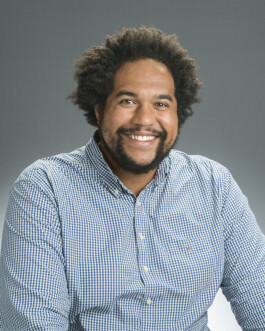Speaker Template
Hosts of the Dead. Black Thought as Necromancy
February 24, 7–8:30 PM
In 1814, in the newly sovereign kingdom of Haiti, Baron de Vastey published The Colonial System Unveiled, the first systemic critique of colonialism written from the perspective of the colonized. Calling out the former French colonists, he describes his intellectual endeavor as follows: “I shall awaken the remains of the numerous victims you thrust into the grave and borrow their voices so that I might unveil your foul deeds. I shall exhume those poor wretches you buried alive.” If necromancy is defined as the ritual or magic practice of communicating with the deceased, endangering the frontier between life and death, then historically, modern Black critical thought could be defined as a singular form of necromancy.
Ajari discusses the constancy of invocations of the dead throughout the history of Black thought, from the period of chattel slavery through the 21st century, and explore their liveliness and functions. Because of the ever-present proximity of execution, the difficulties to mourn the dead, and distinctive religious and artistic imaginaries of the hereafter, which all defined their existence, people of African descent have often re-imagined necromancy as first philosophy. In the process, the haunting proximity of death is turned into an opportunity for humanization and empowerment.

BIOGRAPHY
Dr. Norman Ajari is lecturer in Francophone Black studies at the University of Edinburgh. His research interests comprise critical race theory, Africana philosophy, Black male studies, and continental philosophy. His first book, La Dignité ou la Mort: Éthique et politique de la race, was published in 2019. It was translated into Spanish and English by Polity Books (2022). He is a member of the Frantz Fanon Foundation’s international board.

caption can go here
PROGRAMS
Speaker Template

Hosts of the Dead. Black Thought as Necromancy
February 24, 7–8:30 PM
In 1814, in the newly sovereign kingdom of Haiti, Baron de Vastey published The Colonial System Unveiled, the first systemic critique of colonialism written from the perspective of the colonized. Calling out the former French colonists, he describes his intellectual endeavor as follows: “I shall awaken the remains of the numerous victims you thrust into the grave and borrow their voices so that I might unveil your foul deeds. I shall exhume those poor wretches you buried alive.” If necromancy is defined as the ritual or magic practice of communicating with the deceased, endangering the frontier between life and death, then historically, modern Black critical thought could be defined as a singular form of necromancy.
Ajari discusses the constancy of invocations of the dead throughout the history of Black thought, from the period of chattel slavery through the 21st century, and explore their liveliness and functions. Because of the ever-present proximity of execution, the difficulties to mourn the dead, and distinctive religious and artistic imaginaries of the hereafter, which all defined their existence, people of African descent have often re-imagined necromancy as first philosophy. In the process, the haunting proximity of death is turned into an opportunity for humanization and empowerment.
BIOGRAPHY
Dr. Norman Ajari is lecturer in Francophone Black studies at the University of Edinburgh. His research interests comprise critical race theory, Africana philosophy, Black male studies, and continental philosophy. His first book, La Dignité ou la Mort: Éthique et politique de la race, was published in 2019. It was translated into Spanish and English by Polity Books (2022). He is a member of the Frantz Fanon Foundation’s international board.

caption can go here